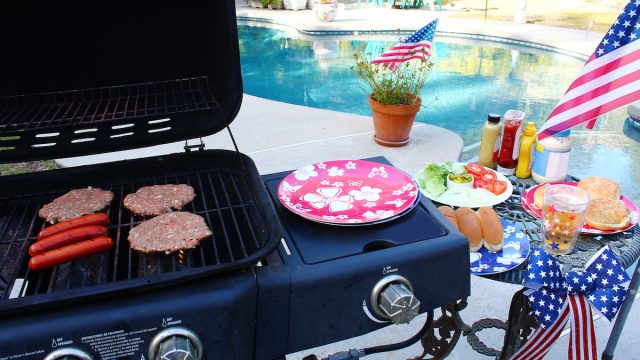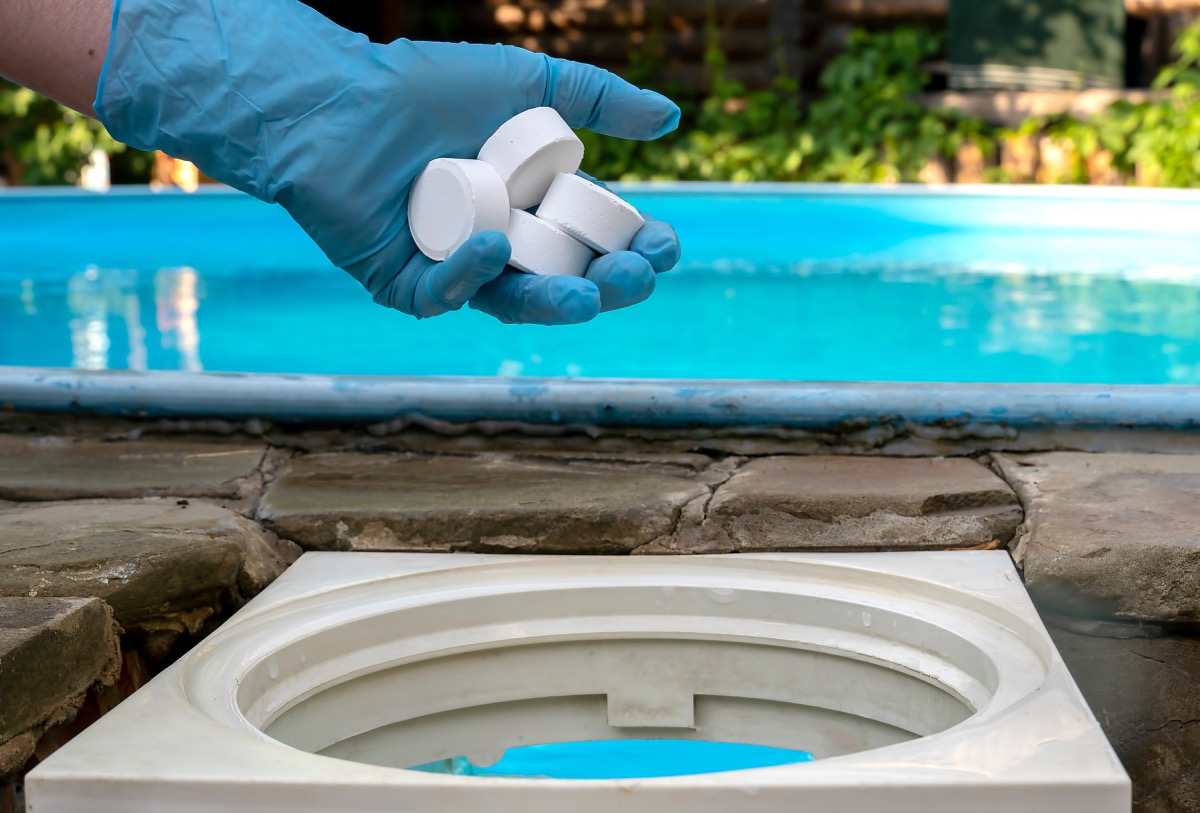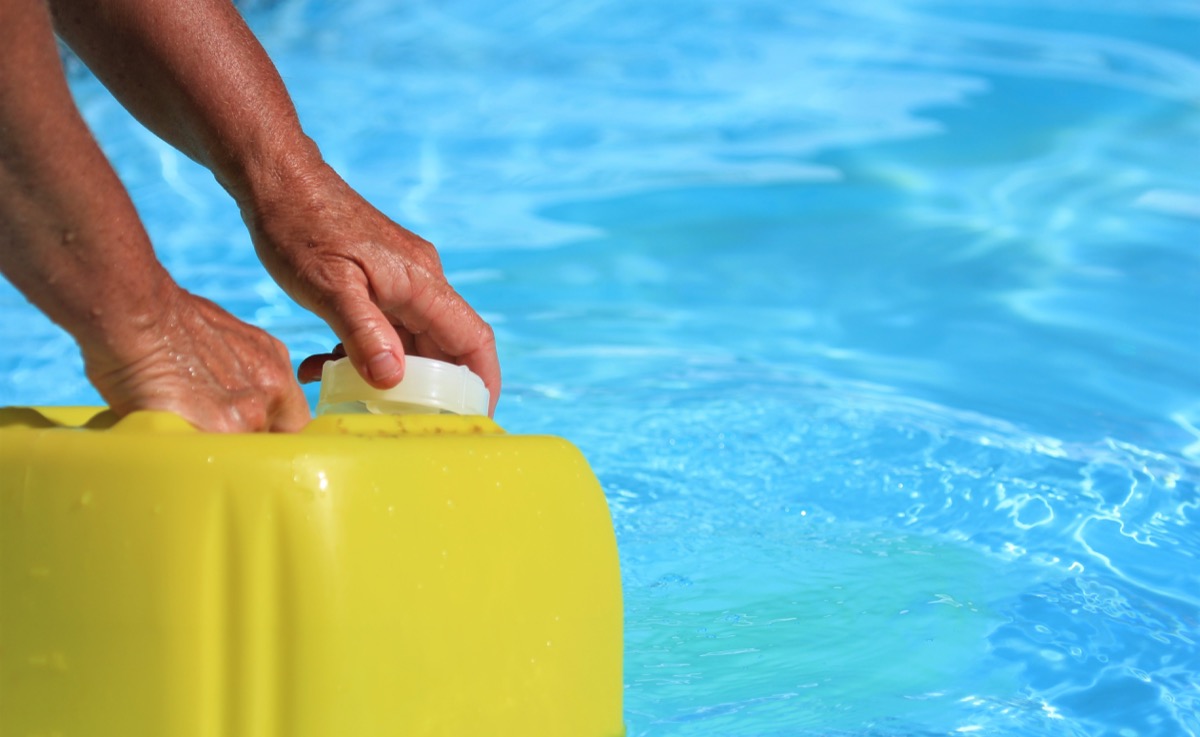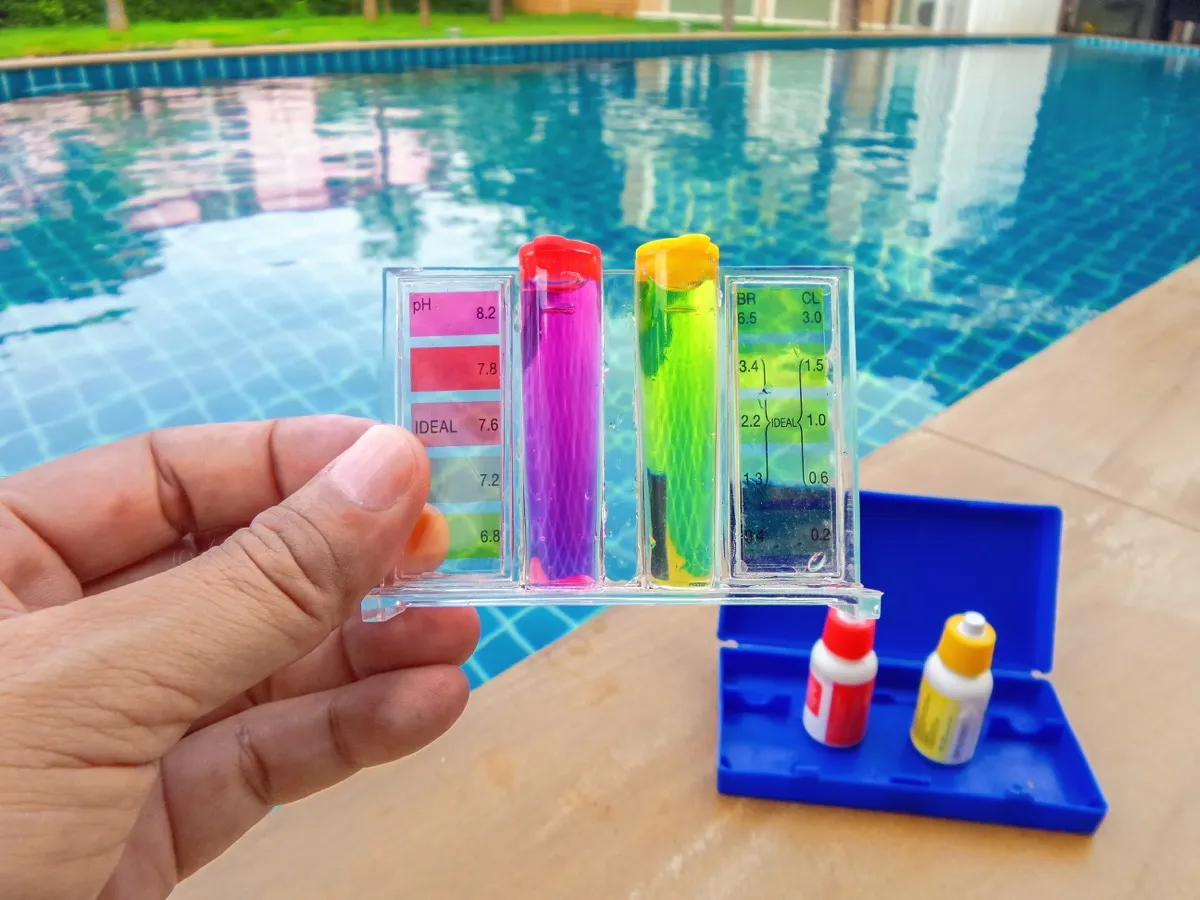There’s a Major Shortage of This Backyard Staple & It Could Ruin Your Summer

With more and more people getting vaccinated, COVID numbers on the decline, and temperatures rising across much of the country, it’s fair to say we’ve all never been this excited for summer. Whether you’re getting ready for a trip or planning to spend some time in your own backyard oasis, chances are you’re hoping to splash around in the pool in the coming months. Unfortunately, there’s a major shortage of one necessity that could seriously hinder your ability to do that this summer. Keep reading to find out what it is, and for more things you might not be able to get your hands on at the moment, This Beloved Summer Food Is Disappearing From Stores and Restaurants.
There is a massive nationwide chlorine shortage.

That collective eagerness to take a dip this summer has people across the country facing a major shortage of chlorine, the disinfectant used to kill bacteria and control algae in pools and hot tubs. In a survey of 26 pool-supply shops conducted by Goldman Sachs, the researchers found that 15 shops expressed “uncertainty or doubt when asked about whether they will have enough chlorine for pool season,” according to USA Today. Thomas Race, owner of Aqua Caribbean Swimming Pool Service in Florida, told the news outlet: “Our standard bucket of 3-inch chlorine tablets, which are the backbone of a lot of pools right now, have pretty much become scarce.”
Cody Saliture, the owner of Texas Pool Professionals, told CNBC his company has also been experiencing the shortage firsthand. They even started stockpiling chlorine tablets and looking for different chemicals to sanitize pools. “We’re looking for anything that we can get that we don’t have here in North Texas,” Saliture said. “We’ve been to about six states and 15 cities [for supplies].”
Tara Vassallo-Soto, co-owner of Rising Sun Pools and Spas in Raleigh, North Carolina, told local news outlet WRAL, “We’re seeing more commercial accounts, people that have hotel pools, HOA pools, neighborhood pools, that again, people are desperate to open back up because they were shut down all last year.” Vassallo-Soto said people are “coming in and trying to buy 8, 10 buckets of chlorine tablets at one time.”
“It’s insane right now,” Austin Price, a technician with Professional Pools and Care in Alabama, told Huntsville CBS affiliate WHNT-TV. “We’re trying to do the best that we can. We want you to understand that with our distributors and things like that, they are back-ordered.”
And for the beloved condiment that’s also disappearing, find out why There’s a Major Shortage of This Popular Pantry Staple.
The shortage stems from a fire at a chlorine plant last year.

BioLab, a leading chemical plant that manufactures pool and spa treatment products, caught fire on Aug. 27, 2020—and the chlorine shortage stems from that incident, USA Today reports. The factory, located in Westlake, Louisiana, burned for nearly three days until the fire could be put out by firefighters.
“Being the industry leader in the production of these essential pool and sanitation products, BioLab is said to have lost a significant amount of its inventory due to this unfortunate incident,” B&B Pool and Spa Center, a pool building company based in New York, says on its website. “Pool owners need these products now more than ever, especially during a global health crisis.” And for more things that are hard to find at the moment, This Household Staple Is Disappearing From Shelves.
And the COVID pandemic led to a rise in pool sales, increasing demand.

In 2020, due to COVID, the pool business was hotter than ever. Tyler Hermon, a sales director at Pools of Fun in Indianapolis, Indiana, told Reuters that pool sales were booming. “I 100 percent attribute this to people quarantined at home,” said Hermon. He noted in Aug. 2020 that there was a 43 percent rise in pool sales at his business from a year ago.
Market data from IHS Markit cited by Goldman Sachs predicts an even bigger surge this summer. They estimate a 58 percent increase in pool sales between June and August compared to the same period in 2020, USA Today reports.
And for more up-to-date news delivered straight to your inbox, sign up for our daily newsletter.
If chlorine isn’t available for purchase, pool owners will need to be creative.

“People are going to move their method of sanitization to another product, either a granular product or a liquid product,” Mark Joslin, Pool Corp CFO, told Yahoo Finance. “But there’s no shortage of ways to sanitize the pool. It just simply means at a certain point people will shift. We’ve also seen certain parts of the country accelerating the use of salt as a method of sanitization too.”
Similarly, Blue Haven Pools & Spas told The Miami Herald that, in place of chlorine, pool owners can maintain pool cleanliness with saltwater sanitizers, ozone purification, and UV light treatments.
Swim University also recommends some household items that can be used for pool cleaning: baking soda, bleach, muriatic acid, borax, olive oil, white vinegar, lemon juice, rubbing alcohol, and vitamin C tablets.
And for more products that may be harder to find these days, These 4 Beloved Foods Are Disappearing From Grocery Shelves, Experts Warn